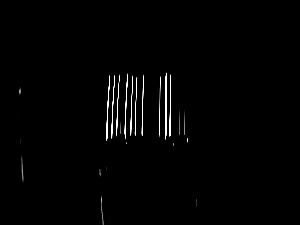This forum is disabled, please visit https://forum.opencv.org
 | 1 | initial version |
Here is a paper to help accomplish your project
Or you could follow this tutorial, but it uses the image gradient and not gabor filters
Here is how to fix the code so the output is not black:
import cv2
import numpy as np
def deginrad(degree):
radiant = 2*np.pi/360 * degree
return radiant
def main():
src = cv2.imread('barcode1.jpg', cv2.IMREAD_GRAYSCALE)
# Introduce consistency in width
const_width = 300
aspect = float(src.shape[0]) / float(src.shape[1])
src = cv2.resize(src, (const_width, int(const_width * aspect)))
### Need to change sigma in blur
### https://en.wikipedia.org/wiki/Gaussian_blur
#src = cv2.GaussianBlur(src, (7,7), 0)
# Apply gabor kernel to identify vertical edges
g_kernel = cv2.getGaborKernel((9,9), 8, deginrad(0), 5, 0.5, 0, ktype=cv2.CV_32F)
### Changed ddepth parameter to -1
### Now our ouptut will be in the same format as input (cv2.CV_8UC1 one channel mat of 8-bit unsigned integers 0-255)
### cv2.filter2d - https://docs.opencv.org/3.4.3/d4/d86/group__imgproc__filter.html#ga27c049795ce870216ddfb366086b5a04
### opencv mat types - https://docs.opencv.org/3.4.3/d1/d1b/group__core__hal__interface.html
gabor = cv2.filter2D(src, -1, g_kernel)
# Visual the gabor kernel
h, w = g_kernel.shape[:2]
g_kernel = cv2.resize(g_kernel, (20*w, 20*h), interpolation=cv2.INTER_CUBIC)
cv2.imshow('src', src)
cv2.imshow('gabor', gabor) # gabor is just black
cv2.imshow('gabor kernel', g_kernel)
cv2.waitKey(0)
if __name__ == "__main__":
main()
